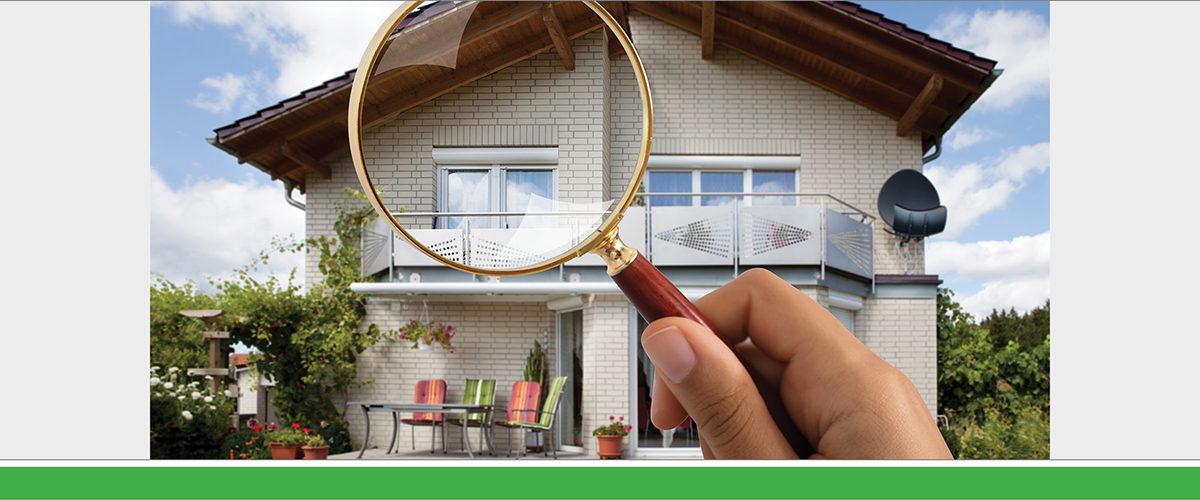-
How to Prepare Your House for a Home Inspection

If you plan to have a home inspection before listing it for sale, or if the buyer has scheduled an inspection before closing, it’s important to prepare your house. Getting your home ready for the inspection will ensure a smoother process and potentially better outcomes.
The home inspector will examine the house’s physical structure and systems. The inspector will look for defects, damages, or safety issues and provide their findings with pictures, analysis and recommendations in a report.
Here are some tips to prepare for the home inspection and make the process smoother, easier and safer for the inspector.
Buyer’s Inspection
As a homeowner, you don’t typically attend the buyer’s inspection. It will be the buyer and their inspector of choice. Before the inspection, remove any personal items you don’t want the inspector to see, such as photos, documents, valuables, or medications. Make sure the house alarm is off, and secure or remove any pets.
Clean and Declutter Your Home
One of the simplest and most important things you can do to prepare for a home inspection is to clean and declutter your home. Remove any trash. A clean and tidy home will make a good impression and show that you care about your property.
Make All Areas Accessible
Provide access for the inspector to conduct a thorough and accurate inspection. Clear any obstacles or debris that may block the inspector’s access to any areas of your home—open access to the attic and crawl space, closets and cabinets.
Clear the area around the furnace, water heater, air conditioner, and electrical panel. It would help if you ensured that all doors, windows, gates, locks, switches, outlets, etc., are working and accessible. Open all window coverings to avoid possible damage. If the garage is detached, leave a key.
Repair Minor Issues
The inspector will check your house’s structure, plumbing and electrical. It’s important to address any known issues with these areas before the inspection. Small repairs, such as leaky faucets, loose doorknobs, or cracked tiles, may seem insignificant. Still, they can leave a negative impression on the inspector and potential buyers. Call a company to fix these issues and avoid any repair requests.
Ensure all appliances included in the sale, such as the dishwasher, oven, stove, refrigerator, washer, and dryer, are clean and in good working order. Taking care of these minor repairs and ensuring the functionality of your appliances will contribute to a smoother process.
Replace Filters, Batteries and Bulbs
A home inspector will also check the functionality and efficiency of your cooling, heating, and electrical systems to check if they are working properly and safely.
Replace the dirty air filters in your furnace and air conditioner, the water filter in your refrigerator, the range hood filter in your kitchen, etc. Plus, replace any dead batteries in your smoke and carbon monoxide detectors.
These simple replacements will show that you regularly maintain your systems and prevent malfunctions or safety hazards. The easiest is to replace burnt-out or flickering light bulbs. Turn on the pilot light for the fireplace; for a wood stove make sure it is clean and safe.
Exterior Trim and Tidy Up
The inspector will also look at the exterior of your home and its surroundings. Clean the rain gutters and clear walkways of debris or hazards. Trim trees or branches away from the house if they pose a risk. If you have a fence, deck, patio, or shed, ensure they are in good shape and secure.
Documentation
Compile any relevant documentation that may be helpful for the inspector. These include receipts, invoices, warranties, permits, manuals, etc., for home repairs, renovations or appliances.
Special Instructions
Finally, if you have any special instructions so the inspector does not damage property or cause personal injury, explain things that may need to be more obvious. These items may include the sump pump discharge location, why a circuit breaker is in the off position or if the outdoor lights are on a timer or solar eye.
Conclusion
In conclusion, here are key points to remember when preparing your house for a home inspection:
- Clean and declutter your home to show you care about your property.
- Ensure accessibility by clearing obstacles and providing open access to all areas.
- Repair minor issues to avoid negative impressions and potential repair requests.
- Replace filters, batteries, and bulbs to showcase proper maintenance.
- Trim and tidy up your landscaping for a well-maintained exterior.
- Compile relevant documentation, such as receipts and warranties, for the inspector’s reference.
- Provide special instructions to prevent any property damage or personal injury.
By following these guidelines, you can make the home inspection process smoother, avoid delays, and increase the value and appeal of your home to potential buyers.
How Can We Help
When it comes to your home, having the right information at your fingertips can mean a world of difference.
O’Brien Home Inspections takes great pride in delivering a quality experience for home buyers and sellers in the London, Ontario area. Contact Mark for information or to schedule an appointment.
O’Brien Home Inspections
Quality Home Inspections for London, St. Thomas and Middlesex County
Book your inspection online, or call 226-998-5821 or book online today.


